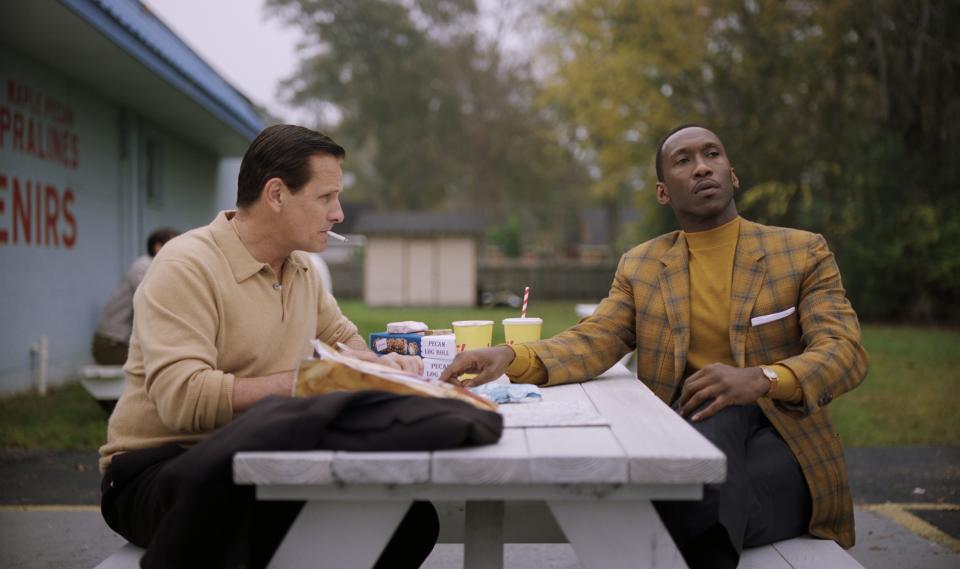Is it important for film biopics to be historically accurate?

“Based on a true story” is one of the most common phrases seen in the opening credits of a film. It varies, of course. “Story” could be replaced by “events,” “inspired by” instead of “based on,” and so on.
You get the idea.
Real life and real people offer a fount of material for filmmakers and audiences can’t get enough of seeing these stories brought to life on the big screen.
Over the last twelve months there has been no shortage of films based on real people, from British monarchs (The Favourite, Mary Queen of Scots) to drug addicts (Beautiful Boy), astronauts (First Man) to literary frauds (Can You Ever Forgive Me?), and viewers have enjoyed learning about and being entertained by the slice of history they tell.
But there have been certain biographical pictures, or biopics as they’re more commonly referred to, that have been criticised for being far too economical with the truth.
Bohemian Rhapsody and Green Book, two films that took home the Best Motion Picture Drama and Comedy or Musical awards, respectively, at the Golden Globes this weekend, have both come under increasing fire ever since each one was released.

The Freddie Mercury biopic has been criticised for taking too much creative licence with the retelling of the Queen frontman’s life, using alternative facts for significant events, that barely explored his racial identity and downplayed his queer experience.
“I’ve never seen a film distort its facts in such a punitive way. It’s like the movie wants to punish Freddie Mercury,” UPROXX’s critic Mike Ryan wrote. “Mercury’s tragic death from AIDS was a defining moment in the early ’90s fight for AIDS awareness. To now retcon his illness into his Live Aid performance seems flippant and cruel.”
Then there’s Green Book, which claims to tell the story of the friendship between African-American pianist Dr Don Shirley and Tony “Lip” Vallelonga, the Italian-American driver he hired to drive him around the Deep South on tour. However, Shirley’s family has described the film, written by Lip’s son Nick Vallelonga, as a “symphony of lies.”
“It was an employer-employee relationship…the only kind of relationship that [Dr. Shirley] ever had with any of the people he worked with,” Patricia Shirley told Shadow and Act about the extent of her brother-in-law’s “friendship” with Vallelonga.
“When you hear that Tony had been with him for 18 months, I can assure you, no chauffeur lasted with my brother for 18 months,” Shirley’s brother and Patricia’s husband Maurice added. “Anybody who knew my brother’s temper and had any experience with any of his other chauffeurs—the maximum was the one from right here in Milwaukee from the Urban League that lasted at least two months.”

Filmmakers have forever used creative licence to make stories more entertaining as well as to fill gaps where first and even second-hand information wasn’t readily available. And, of course, they can’t be expected to know verbatim the conversations that the biopic subjects had, especially if the people in question, like those in the above films, were already dead before the script was written.
However, surely there should be an expectation on the filmmaker to ensure that where certain historical accuracies were overlooked it doesn’t change the truthfulness of the story. I can remember watching Pocahontas as a child and being caught up in the romance between the titular native American princess and the white English soldier John Smith. It wasn’t until I studied American history at university that I learnt how much of the movie was pure fabrication.
Many filmmakers understand the value of film as a means to educate audiences both old and young; Sir Ridley Scott said as much last year when we discussed his TV series The Terror.
“I think to reflect and revisit our history is always interesting because the attention span of people today at school is about six seconds, isn’t it?” he explained. “I think it’s great if maybe the last stand of information has to a certain extent be aligned partly, not wholly, with education.
“What we do with entertainment, which is pictures and words, is a lot more powerful as an educational device than some kid expected to sit down and read a book to learn it.”
That’s all well and good but as a lot of viewers take historical movies at face value, it’s important that the truth isn’t distorted just so it fits in with the writer’s narrative. This might mean the writer has to work a bit harder to ensure the authenticity of their script or even scrap their original plans in order to respect the person’s life they are, to put it bluntly, profiting off.
Yann Demange had to go through this when making his movie White Boy Rick. “It’s the biopic nightmare,” the director told me. “It felt like there were three films fighting for the space of one and there was the one that I really wanted to tell, but there is a responsibility because [Rick] is alive and [in prison], I couldn’t just dismiss it.”
That seems to be the frame of mind Adam McKay was in when he set to work on his Dick Cheney biopic. The writer-director did a ridiculous amount of investigative work into the former US Vice President, reading every book on him, his wife Lynne and his 50-year political career as well as interviewing several people who knew and worked with him, before penning Vice.
But he stopped the dialogue and narrative from being dull by utilising the storytelling techniques he had used in his previous movie, The Big Short, which also focused on real-life events and people.
“After The Big Short, I thought we uncorked this storytelling style that has some power to it, he told Vanity Fair. “When I stumbled on Cheney, I was like, ‘Oh, my God. This is perfect.’ He’s such a boring person on the face of it. He’s a bureaucratic genius. And a lot of his power and manoeuvres came in this quiet way that we just didn’t pay attention to. Using these stylistic flourishes is a blast, and it allows us to mix in different styles and cover five, almost six decades of American history.”
McKay tried to stick as close to the facts as possible and even put a disclaimer at the beginning of the film to explain that despite Cheney being famously secretive about his life, they did their “f**king best” to be as truthful as possible.
So is it important for biopics to be historically accurate? Not necessarily, but it does need to be as close to the truth as possible. It’s the filmmakers’ responsibility to the ensure this for not just the audience but the subjects of their films too.
Truth to cinematic power.
Read more
Bryan Cranston on lack of disability actor opportunities
Idris Elba and Daniel Craig troll Bond fans
Lady Gaga fans unhappy with Best Actress snub

 Yahoo Movies
Yahoo Movies 
